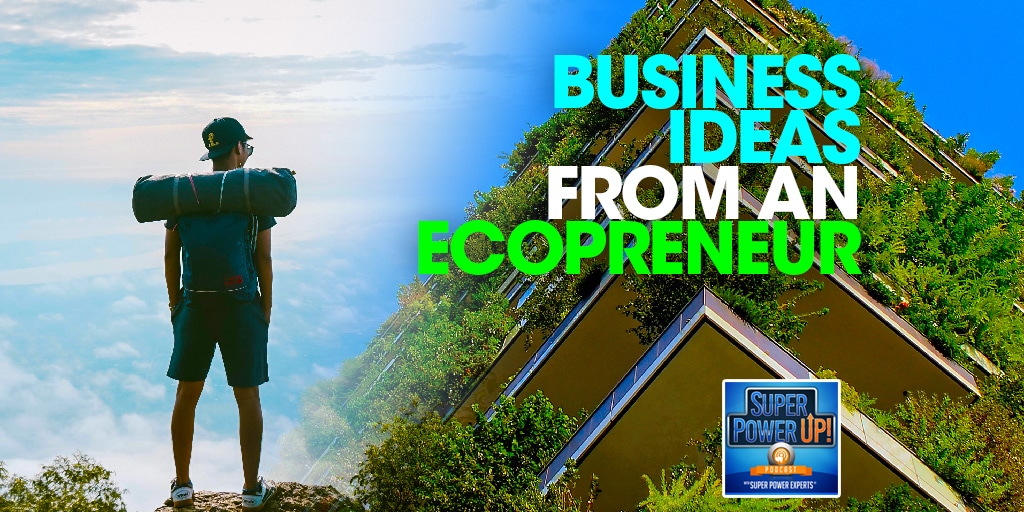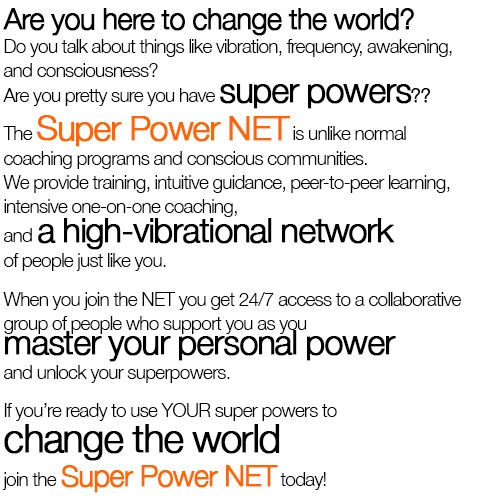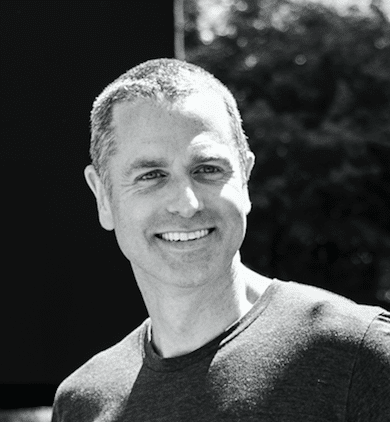
Hello everyone, this is Tonya Dawn Recla, your superpower expert, and I have a really fun conversation for us today. We’re talking today with Scott Simons, who is an ecopreneur folks, this is perfect. I know so many of us, our hearts are in this space of really making sure, the way he describes it is putting people, purpose and planet before profits. I know we can all get behind that. You’re not listening to this podcast if you didn’t feel that way.
I think the challenge though sometimes is how to do it, and so we’re gonna be talking about business ideas from an ecopreneur. I think Scott is the perfect person to talk to us about this. Not only does he have this as his daily manta practice or whatever, but he also has three social businesses. We really need more, and more, and more people to step forward and say, “This can be done, and we can do it this way. Not only can we, but we need to do it this way. It’s time for something different.” In 2004, he co-founded … Scott, is it Padua?
Padua, exactly. Yep.
Oh, I was worried that my Star Wars was coming out there. Padua Center, a community wellness center. Also, DESTA Black Youth Network. He’s all over the place and he also has Organik Corporate Health. Y’all are seeing this profile, right? This is the guy to talk to about how to do this, and he’s proved positive. He’s walking, talking, breathing proof. All of those little fear pieces that we have that it can’t be done, they need to just take a backseat on this conversation and listen to what Scott has to say. Scott, without further adieu, welcome. Welcome to the show. We’re really glad to have you here.
Thank you so much, it’s great to be here.
Absolutely. Let’s dive right in, and you know it’s coming, what are your superpowers?
I listen to your podcast, great podcast. I’m happy to be here.
Thank you.
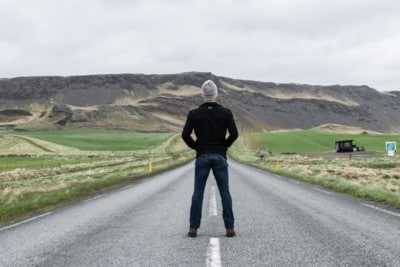
My super power is discipline.
I knew this question was coming, and I’d say discipline is probably my superpower. Discipline can be a tough word, it can be a loaded word, so I like to use practice, but my daily practice of health is definitely what grounds my energy. Grounds my focus, keeps me connected to my values. Those values of ecopreneurship, and just keeps me in my scottness.
Your scottness.
I can share from there, making sure I’m not sharing from my ego or from feeling superior or inferior, or stuck in situations. Really feeding or sharing from my spirit if we can say that. I’m pretty sure I can say that here.
You can say that here. In fact, we welcome it. I like that you distinguished that. Two things that were key in your response. One you played with the semantics and the connotation issues with regard to something like discipline. I talk about discipline a lot, but just like I talk about power a lot, and I really grappled with that, what, 10 years ago, taking on … oh my goodness, I think it’s more than 10 years now. Maybe I’m dating myself. Anyway, taking on the concept of power because we have so many connotations, the same with discipline. I like the softening it up a little bit. Certainly not watering it down at all, but softening the edges around it a bit and saying it’s practice.
It’s so crucial, and then you reference scottness, and at the same time, you made sure to really clarify that and say, what you’re talking about is what we would call the super-self because we’re geeked out on all things superpowers. It can’t be the higher-self, it’s gotta be the super-self. But, it is that component of making sure that, that’s the piece, and I’ve been very vocal on a number of these shows, and with my clients that, that is my secret weapon. I feel myself to be in a constant state of prayer pretty much at all times, and when I’m not, it’s very obvious. That’s the secret is being able to turn it over. And yet, we have to do that very individual work of being able to be the container for that. It’s one thing to totally just advocate that over to spirit or source, but it’s another to show up fully in it. I think that, that’s a little bit of a twist that maybe we don’t talk enough about. What’s your take on some of that?
Especially in the businesses that I’ve created, which are wellness based. The school, the community center in Organik, is pretty much where wellness brokers for companies, we make health accessible for employees in the workplace, where there’s an epidemic of stress and anxiety. Pretty much it’s a lifestyle business. I can’t walk into these companies, or walk into the school or community center, and not be healthy or at least on the path. It’s not optimal health in perfection, but it’s constantly practicing for progression in a sense. If I’m not on that path and not sharing from that and not sharing from a place of resonance, and more from dissonance, it just doesn’t work. I can’t fake it. That’s where that superpower comes in and stay connected to my super-self. I love super … is that what you said? Super-self?
Yeah. That was it.
That’s really good. Really good.
I like that you take it seriously. I remember in college, I was in grad school and I was teaching in the teacher prep program. My master’s is in interdisciplinary education platform, but anyway. I was teaching people who were getting their teacher certs, and I remember at one point I got so frustrated. I wasn’t quite the sage that I am today. I was a little bit frustrated and I remember stopping the class and asking the class, “Why do you want to be teachers?” I had them go around the room and say this, and a lot of them were like, “Well, it’s a great schedule. I really want my summers off,” and all this stuff. I said, “I’m really gonna invite you…” I’m sure I didn’t say it this kindly but, “I’m really gonna invite you to do some soul searching on this because…” at that time I didn’t have our daughter but, “I don’t have kids, but you’re gonna be teaching kids that I’m gonna interact with in society. At some point, regardless of whether, or not you truly want to step into that space, teaching is a responsibility.”
It’s like, with great power comes great responsibility. I love the fact that you’re playing in this youth space, and you’re owning the fact that everything that you are becomes on display for them. You can’t say something that you’re not willing to embody, and you can’t encourage them to do something that you’re not willing to do. I really like that you own that piece and it’s not just … we talk about congruency. It’s not just the words you speak or even the motions with your body, we read energy first. If you’re not being congruent, we know, and kids in particular, they’re gonna completely disregard you, and you’ll never know why.
Not only that, but you’re gonna continue to send the real subliminal message that it’s not safe to show up fully as who you are, because they can feel from you that you’re more evolved than the average bear, and then if you don’t show up fully and aren’t practicing it, it automatically sends the message that it’s not safe. My take is that if you’ve done this work, this spiritual journey work, this personal development work, you have a responsibility to show up fully in that because people are watching. Whether it be children, whether it be your spouse, whether it be just people in general, strangers you meet on the street, everybody’s hungry, and everybody’s desperate to know, is it okay for me to be me? When those of us who’ve done this work aren’t doing that, I think that it’s a problem.
You said a responsibility, and I always impact that word into the ability to respond. We have so much more of that ability to respond to what’s going on in the world at the moment, and I think underserved youth that I’ve been working with have challenged me to be able to respond in a way that resonates with my values more than any population. I like to use the word responsibility. We need to take more responsibility and really get out of that reactionary mind that we can get so stuck in that reptilian brain that seems to be leading so many systems at the moment from the education, the political … I don’t want to get into all that.
But, we have to get back to that more responsive response in a sense to everything that’s going on around us. Youth really have challenged me in community work much more than going into corporations. Going in to community work. Community work is really what challenged my self, with a big S. My individuation process. Who am I, and how can I walk through these doors, and walk in truth? Because as you say, they feel it right away, and it just won’t work in that context. In corporate, it can work easily, but not in community.
Beautifully, beautifully put. I’m just gonna call this out here because I have two degrees. One’s in intercultural communication and one’s in critical race theory. Correct me if I’m wrong, but you don’t identify as black. Is that a true statement?
No, I’m probably one of the farthest things from … I’m very white from Scottish descent.
Okay, cool. I just wanted to put that out there because you developed a black youth group, and I really wanted to talk a little bit about that because I had my fair share of experience working in … in fact I wrote a whole thesis on how to be a white ally, and what it means to be in group dynamics and power differentials and everything else. How were you drawn into that work?
I guess it was a gift. It was kind of life, how it unfolds. My mentor, who I met at a more difficult phase in my life when I was 19, 20, he came back to Montreal. He had left to write a book, and he was given this kind of run-down church. I’d never really been in churches before and I was his kind of assistant. This was the Padua Center and we created this community wellness center that was in the heart of what’s called Little Burgundy, which is one of the highest concentrations of low-income housing in North America actually. I didn’t think it was that, but when I wrote the grant, we figured that out. In this population was very high black population. I just ended up there. I come from Quebec City, which is pretty much 99% white, so I’d never really encountered this culture.
It was really a gift to not only just encounter it, but go deeply into it and create a beautiful connection. A relationship with this beautiful culture that’s so rich, and such beautiful hearts, and so much talent. Pretty much I just ended up there. We saw the need, we saw that there were no services for 18 to 35-year-olds. Wrote the grant, received 250000 from Human Resource Canada, and that was the seed grant, and that was 11, 12 years ago, and we’ve just been continuing. We do accept anybody that walks through the doors, but the main focus are black, young adults, aged 18 to 35 that have been unserved, and now in 2018, I think more than ever, we can see the victim identity that these people are going through.
The history and I guess the help that they need. Yeah, I’m a white guy, but some people help cancer victims. Some people rape victims, some people addicts. You don’t have to be an addict to help an addict, so you don’t have to be I think a black person to help that community. It all comes down to human beings that are in need. It just fell right into my mission, which is to inspire health and I ended up there. That’s kinda the quick story.
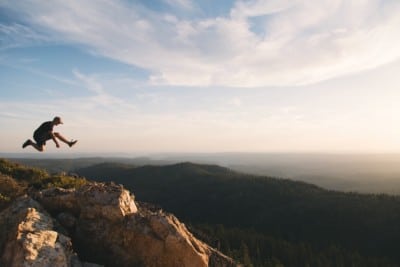
I love hearing about people’s health journeys.
Beautiful, beautiful, and thank you so much for being willing to entertain the question. Let’s tell people where they can go to find out more about you.
You can go to the website. The Organik website is beorganik. If not, Instagram. I’m quite active on Instagram. It’s organikmtl or scottsimons22 on Instagram as well. 22 is my favorite number, so scottsimons22. If not, they can send me an email at [email protected]. I love receiving emails, I love coaching or hearing about people’s health and wellness adventures and journeys. They can easily send me an email as well.
Beautiful, beautiful. We’re gonna take a quick break. We’ve been talking with Scott Simons today about business ideas for the ecopreneur, and we will be right back folks. Stay with us.
To listen to the entire show click on the player above or go to the SuperPower Up! podcast on iTunes.
Podcast: Play in new window
